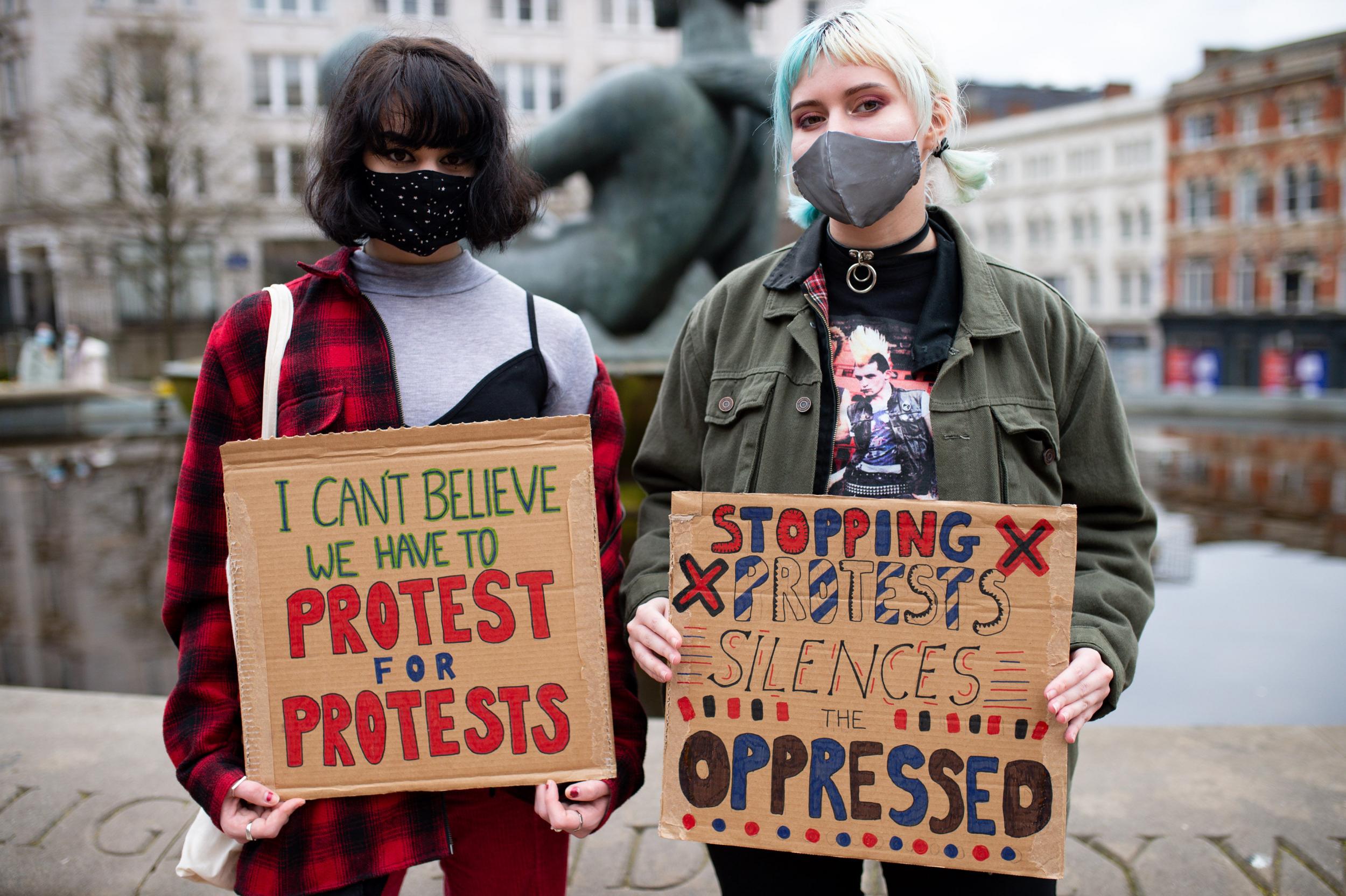Curbing protest rights in the UK will have a chilling effect on our democracy and smacks of hypocrisy
When the Police, Crimes, Sentencing and Courts Bill is debated today, let’s vote to remove restrictions which undermine people’s right to be seen and heard by those in power, says Sarah Champion


The government has repeatedly stressed its commitment to human rights and open societies, but when it comes to putting these into practice at home, the UK is falling short.
Just a few weeks ago, Boris Johnson along with other G7 leaders reaffirmed the importance of the values that unite them, including human rights, democracy and the right to associate, organise and assemble peacefully, as well as free expression online and offline. Prior to this, the Integrated Review – billed as the government’s flagship foreign policy playbook – stated that the UK’s “efforts to reverse this decline in global freedoms must start at home, with open societies working together”.
Yet the Police, Crimes, Sentencing and Courts Bill 2021, due to enter report stage today, takes us in the opposite direction. Part 3 of the bill undermines peoples’ right to protest – a vital way for people to quite literally be seen and heard by those in power. By introducing vague and broad powers subject to the discretion of the home secretary and police, and creating new offences, the bill will have a chilling effect on our democracy and our ability to say no to power. It undermines the very values we seek to promote internationally.
In the last few months, the UK has been a vocal supporter of protesters in Hong Kong, and I would point to the hypocrisy of our condemning China’s action towards those protesters while attempting to institutionalise similar tactics here. The police already have extensive powers to impose conditions on both static protests and marches. Many of the reasons presented during the committee debate as necessitating new powers are already covered by the Public Orders Act 1986. In evidence sessions, Matt Parr, Her Majesty’s inspector of Constabulary and Fire & Rescue Services, noted that many senior police officers already think they have sufficient power.
As the Bill stands, protesters could face serious jail time for breaching conditions such as noise restrictions or time limits, imposed by the police, regardless of whether they knew about them or not. Yet despite repeatedly asking the minister Victoria Atkins for clarification on how the vague terms such as “serious unease, alarm and distress” or “serious noise” would be determined – I am yet to receive a satisfactory answer. In fact, when pressed it became clear that these “objective tests” are completely subjective.
In communications to the UK government, UN Special Rapporteurs expressed concerns that provisions in Part 3 fall short on rights to freedom of expression and peaceful assembly under international human rights law. While the Joint Commission on Human Rights found that it would restrict rights to protest in a way that is inconsistent with the Human Rights Act 1998. In short, this is bad news for British democracy.
Yes, protests can be loud and disruptive. But that is the point. I may not always agree with the issues protesters in my own constituency of Rotherham take to the street about, but I do believe in their rights to do so. Protest is not only important, it is the bedrock of our entire democracy.
The UK’s domestic actions must back up its international commitment to promote and protect open societies and human rights. Parliament can take a step in the right direction by voting to remove Part 3 from the bill in today’s debate.
Sarah Champion is a Labour MP for Rotherham



Join our commenting forum
Join thought-provoking conversations, follow other Independent readers and see their replies
Comments